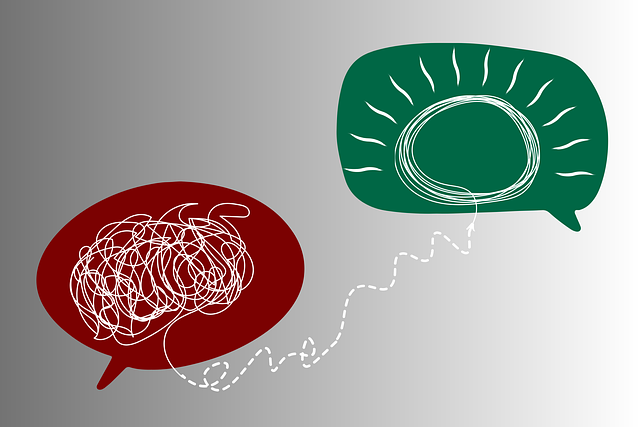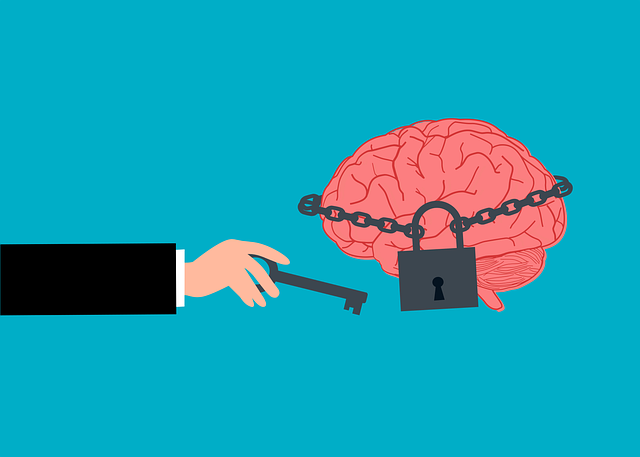Marketing mental wellness apps like Golden Sexual Addiction Therapy requires understanding target audiences' unique needs, including their struggles with sexual addiction and related mental illnesses. A tailored approach, emphasizing discretely professional support, advanced therapeutic techniques, and community building, sets these apps apart in a competitive market. Utilizing online channels like social media, email marketing, and content creation, they reach diverse audiences seeking mental health solutions. Trust and credibility are built through transparency, proven efficacy, and highlighting specialized approaches, success stories, and risk management planning, differentiating apps like Golden Sexual Addiction Therapy in the market.
In today’s digital age, mental wellness apps are transforming lives. To stand out in a competitive market, a robust marketing strategy is crucial. This guide delves into crafting an effective plan for your mental health app, focusing on understanding diverse user needs, from stress management to specific issues like Golden Sexual Addiction Therapy. By defining your unique selling proposition and leveraging digital channels, you can build trust and reach a wider audience seeking support. Learn how to navigate this landscape to ensure your app’s success.
- Understanding Your Target Audience for Effective Marketing
- Crafting a Unique Selling Proposition (USP) for Mental Wellness Apps
- Leveraging Digital Marketing Channels for Reach and Engagement
- Building Trust and Credibility in the Mental Health App Space
Understanding Your Target Audience for Effective Marketing

Understanding your target audience is a cornerstone of any successful marketing strategy, especially within the sensitive realm of mental wellness apps. When developing marketing campaigns for tools like Golden Sexual Addiction Therapy, it’s crucial to recognize that each user has unique needs and challenges related to their mental health journey. This involves not only comprehending the demographic makeup but also delving into their psychological states, personal histories, and specific struggles, such as sexual addiction or related mental illnesses.
By focusing on these aspects, marketing efforts can move beyond generic messaging towards tailored solutions. For instance, promoting resilience-building features for those dealing with addiction may resonate more deeply than general wellness content. Moreover, addressing the ongoing Mental Illness Stigma Reduction Efforts in your marketing strategy ensures a supportive and non-judgmental approach, fostering trust among potential users who might otherwise hesitate to seek help. This empathetic understanding of the target audience is key to effectively reaching and assisting those in need, while also highlighting the app’s ability to provide discreet and professional support, as evidenced by its comprehensive Risk Assessment for Mental Health Professionals feature.
Crafting a Unique Selling Proposition (USP) for Mental Wellness Apps

In the competitive mental wellness app market, crafting a distinct and compelling Unique Selling Proposition (USP) is paramount for standing out. Apps focused on sexual addiction recovery, like Golden Sexual Addiction Therapy, offer specialized support that goes beyond general stress reduction methods. By targeting specific challenges faced by individuals struggling with sexual addiction, developers can attract users seeking tailored solutions. Incorporating advanced therapeutic techniques and personalized tracking tools sets these apps apart from generic stress management workshops or organizations.
Unique features such as discreet communication platforms, gamified milestones for progress tracking, and access to a supportive community of peers and experts can all contribute to a compelling USP. Emphasizing the app’s ability to provide accessible, anytime, anywhere support for managing stress-related issues within the context of sexual addiction recovery will resonate with users actively seeking effective stress management strategies. This approach not only caters to a specific need but also builds trust among users who are often sensitive about their personal struggles.
Leveraging Digital Marketing Channels for Reach and Engagement

In today’s digital era, mental wellness apps have a powerful tool at their disposal: digital marketing channels. By strategically leveraging platforms like social media, email campaigns, and content marketing, these apps can reach a broader audience and foster meaningful engagement. For instance, targeted ads on popular social media sites can attract individuals seeking solutions for issues like sexual addiction, as highlighted by Golden Sexual Addiction Therapy. This approach not only increases visibility but also builds trust by showcasing the app’s expertise in emotional healing processes.
Furthermore, content marketing plays a pivotal role in educating potential users about self-esteem improvement and the importance of mental wellness. By creating valuable resources, such as blog posts or informative videos, the app can establish itself as a trusted authority on these matters. Additionally, developing compelling public awareness campaigns can further enhance the app’s reach, targeting specific demographics and contributing to broader conversations around mental health.
Building Trust and Credibility in the Mental Health App Space

In the competitive mental health app market, establishing trust and credibility is paramount to standing out. Users seeking therapy or stress management solutions are often vulnerable, making transparency and proven efficacy essential marketing tools. Building a strong brand reputation involves showcasing expert guidance and evidence-based practices. For instance, Golden Sexual Addiction Therapy can emphasize its specialized approach and the success stories of recovered individuals to foster trust. This strategy not only highlights the app’s effectiveness but also creates a sense of community and support.
To enhance credibility, integrating educational elements into marketing campaigns is powerful. Promoting Mental Health Education Programs Design or hosting informative webinars about various mental health topics can attract users interested in personal growth. Additionally, highlighting the role of risk management planning for mental health professionals ensures that the app prioritizes user safety and privacy—a critical aspect that sets responsible apps apart from others. These tactics contribute to a positive brand image while meeting the diverse needs of individuals seeking mental wellness support.
In developing a marketing strategy for mental wellness apps, understanding your target audience is key. By crafting a unique selling proposition that resonates with users seeking solutions, like Golden Sexual Addiction Therapy, you can leverage digital marketing channels to reach and engage a broader audience. Building trust and credibility through authentic content and expert insights positions your app as a reliable resource in the mental health space. Implementing these strategies ensures your app stands out in a competitive market while addressing critical mental wellness needs.














